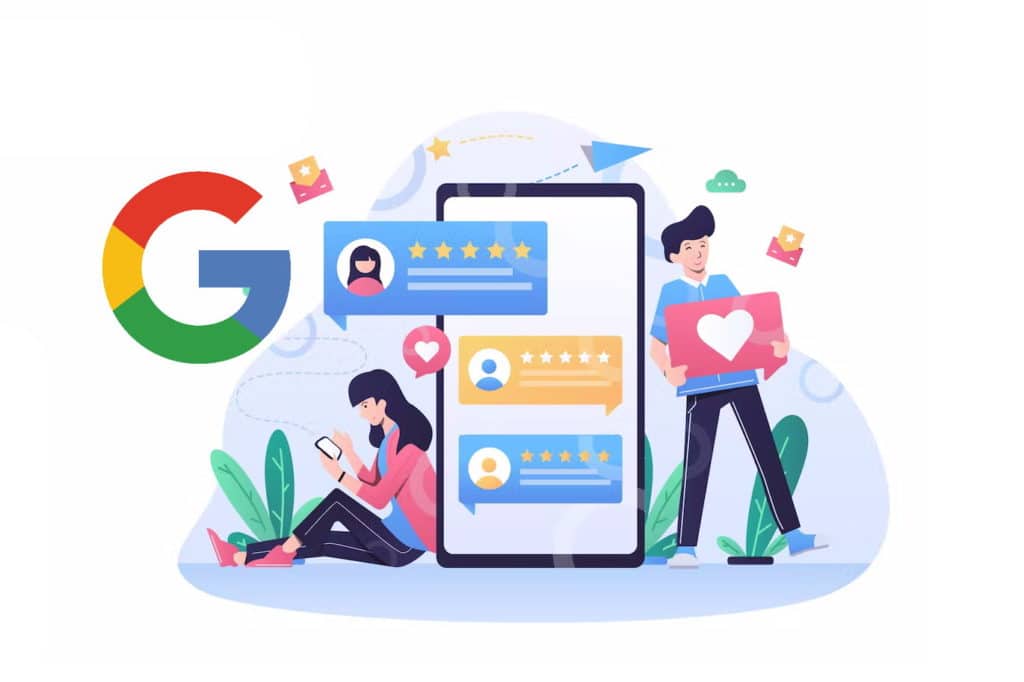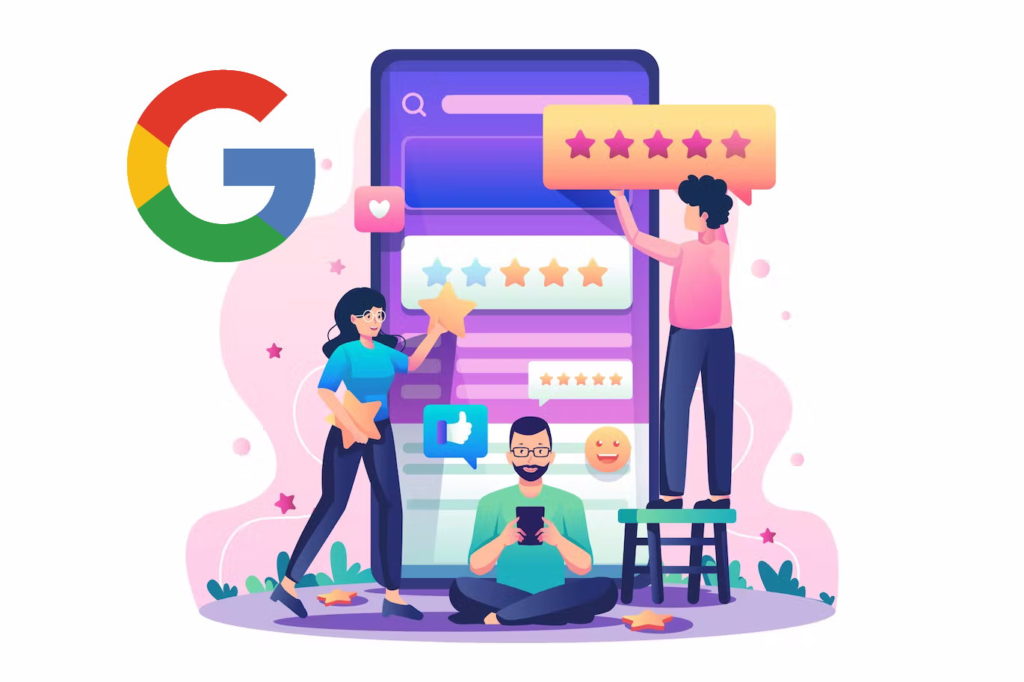The Future Of Google Reviews: How Ai And Machine Learning Are Changing The Game

The world of Google Reviews is evolving, and the future looks brighter than ever. With advances in Artificial Intelligence (AI) and Machine Learning (ML), Google Reviews are becoming smarter, more efficient, and more reliable than ever before. As Truzzer CEO Fabian Hock puts it: “We’re only at the beginning of this journey – but we can already see how AI and ML are changing the game for businesses.”
In this article, we take a closer look at these exciting new developments in Google reviews technology. We explore how AI and ML technologies have revolutionized customer feedback processes to provide faster, deeper insights into customer sentiment – enabling businesses to stay ahead of their competition as they strive for excellence. We also examine some of the challenges posed by this rapidly-evolving landscape, giving readers an understanding of what lies ahead in terms of regulation, data privacy concerns, and potential risks associated with machine learning algorithms.
For those looking to remain competitive in today’s marketplace while simultaneously ensuring customers feel heard and appreciated – understanding the nuances behind Google reviews is essential. Whether you’re a business owner or simply interested in keeping abreast of advancements in review technology – prepare to be inspired by ‘The Future of Google Reviews: How AI and Machine Learning are Changing the Game’.
Definition
Google Reviews have been the go-to platform for leaving feedback about services and products for years now. But with the introduction of automation, machine learning, AI, and artificial intelligence into reviews, a new era of customer experience is emerging. Let’s take a look at what these terms mean and how they’re changing the game when it comes to Google Reviews.
At its simplest definition, automation means allowing machines to do the work that humans once did – like writing summaries or aggregating data from reviews. Machine learning takes this one step further by enabling computers to learn on their own without being programmed specifically. This allows them to process large amounts of user data quickly and accurately. AI (Artificial Intelligence) is an umbrella term used to describe various technologies that enable machines to approximate human abilities such as understanding natural language processing or making decisions based on complex algorithms. Finally, automated summaries are text generated by computer programs which summarise larger pieces of content in shorter formats while preserving important information like sentiment analysis or key topics discussed in the original review.
These advances in technology have revolutionized how customers interact with online reviews and opened up lots of opportunities for businesses looking for ways to better understand their audiences. In turn, companies can use this insight to improve customer service, create targeted marketing campaigns, and even gain valuable product feedback from users who otherwise wouldn’t leave any comments at all. With so much potential value locked away in online reviews, it’s no surprise why businesses are turning towards automation for help unlocking it – let’s move onto exploring some of those benefits next!
Benefits Of Automation
The benefits of automation are incredible. Automating reviews can provide businesses with immense time savings and error reduction, while also increasing accuracy and improving customer trust in their services. This is especially true when it comes to Google Reviews – the automated process allows for pinpoint data collection that would otherwise be impossible.
AI-powered review platforms offer a level of detail that simply isn’t achievable through manual input. With an automated approach, businesses have access to detailed insights about customers’ experiences without any extra effort on their part. This kind of analysis brings invaluable knowledge about how customers interact with products or services, what works well, and where improvements could be made.
And this is just scratching the surface. Automated review systems make it easy for companies to identify patterns and trends across all their reviews quickly and accurately – something which was previously only possible through hours upon hours of human labor! By leveraging AI technology to automate the process, these insights become available instantly – allowing businesses to take advantage of them faster than ever before.
In addition, automated reviews allow business owners to focus more on providing great customer service rather than spending precious time manually inputting feedback into spreadsheets or databases. Ultimately, this leads to better relations between customers and businesses as they are able to respond quicker and more effectively during difficult times – creating loyal relationships built on trust over time.
Automation has revolutionized the way we think about reviews – its potential continues to grow exponentially with each day’s advancements in AI technologies. The possibilities are endless: from predictive analysis to natural language processing, the future of automated reviews looks incredibly bright indeed!
Predictive Analysis
As automation has taken over many aspects of day-to-day life, so too has it revolutionized the way we experience online reviews. With predictive analytics and data mining, user behavior can now be analyzed to provide more effective recommendations for businesses. It’s no surprise that artificial intelligence is being used in Google Reviews – with an AI powered recommendation engine at its core, customers can easily find what works best for them without needing to read through hundreds of reviews.
But how does this effect the future of Google Reviews? Algorithms are constantly learning from customer feedback, making tweaks and modifications on a daily basis to make sure they’re providing the most accurate results possible. This means that as time goes on, the accuracy of predictions will only increase further. Companies will benefit tremendously from this technology; by utilizing algorithmic modifications, they can get insights into user preferences faster than ever before.
The potential applications this type of advanced machine learning could have when applied to reviews is huge; companies could use such systems to target certain demographics or regions more effectively. Additionally, personalization algorithms allow users to receive tailored recommendations based on their previous interactions with other products and services offered by your business. By leveraging these types of technologies, businesses can ensure that customers are getting the most relevant information about their brand available at any given moment in time.
This all points towards a very exciting future for Google Reviews – one where intelligent machines are able to provide valuable insights into customer behavior quickly and accurately. As automated review analysis continues to evolve, we’ll see even more innovative solutions come out that help businesses maximize their return on investment with minimal effort needed from humans! The possibilities seem endless – let’s wait and see just how far AI and machine learning can take us in terms of improving our online experiences!
Algorithmic Modifications
As Google Reviews continues to evolve, algorithmic modifications are becoming a major part of the equation. With machine learning and AI technology advancing at an astounding rate, it’s no surprise that they’ve become integral parts of optimizing the Google Reviews platform. Automation modifications have enabled data analysis changes which allow for faster insights and more accurate feedback on businesses. The ability to quickly analyze reviews and adjust algorithms accordingly has allowed companies to improve their customer experience in ways never before possible.
These changes also provide opportunities for businesses to target specific audiences with tailored messages based on user-generated content. This means better engagement for both customers and businesses alike! Additionally, automated search filtering allows business owners to quickly identify key performance indicators from within their reviews so that they can make informed decisions about how best to optimize their products or services.
AI has been particularly useful in understanding natural language used by reviewers when interpreting online reviews. By utilizing Natural Language Processing (NLP) algorithms, companies can gain invaluable insight into what people actually think about their product or service offering – instead of relying solely on star ratings alone. These insights help them refine their approach and stay ahead of the competition by providing services that keep customers satisfied time after time.
At Truzzer, we believe these advanced technologies will continue revolutionizing Google Reviews as we know it today – leading us down a path towards smarter decision making and greater success for everyone involved.
Natural Language Processing (Nlp)
In the previous section, we discussed algorithmic modifications and their importance in improving Google Reviews. Now, let’s take it one step further by exploring Natural Language Processing (NLP) technology and its potential for revolutionizing reviews.
NLP is a branch of Artificial Intelligence (AI) that enables computers to understand human language as well as extract sentiment from text. This means that with AI-powered machine learning applications, businesses can now analyze customer feedback in an automated way. Through NLP algorithms, companies have access to invaluable insights about their customers’ opinions on products and services – allowing them to make data-driven decisions faster than ever before.
One such application of this technology is sentiment analysis using natural language processing techniques. Sentiment analysis automatically calculates how positive or negative a review is based on the words used in the text – providing instant insight into public opinion without manual effort. With advancements in machine learning, businesses are now able to detect more complex nuances in consumer behavior; understanding not just what people say but why they say it.
Moreover, through advanced natural language processing methods like word embeddings and named entity recognition, companies can gain deeper insights into customer experience. For instance, identifying common topics mentioned within a set of reviews helps businesses zero down on areas where improvement may be necessary – enabling them to provide better service going forward.
By harnessing the power of NLP technology, organizations can create smarter systems that automate tedious tasks while uncovering valuable customer insights at scale – resulting in improved user experiences across all platforms. As seen above, there are numerous benefits associated with leveraging these capabilities; however image recognition & analysis remains another exciting area worth exploring… …as it offers the potential to further improve customer segmentation, target marketing and predictive analytics.
Image Recognition & Analysis
The power of image recognition and analysis is rapidly transforming the way we review products and services. Utilizing machine learning, computers can now be trained to scan images for various features and characteristics that would otherwise go unnoticed by humans. This technology has tremendous potential in Google Reviews, as reviews are often accompanied by pictures from customers who use the service.
Through automated analysis, these images can be used to provide valuable insights about customer experiences with a particular product or service. For instance, an AI-powered system could detect whether a customer was satisfied with their purchase based on facial expressions in pictures they posted. It could also recognize objects or branding elements associated with the item being reviewed, such as logos or packaging materials.
These capabilities give us the opportunity to surface far more accurate feedback than ever before when it comes to assessing how users feel about specific companies and products. With this data, businesses will have even better ways of understanding what areas need improvement so that they can make smarter decisions going forward. They’ll also gain greater visibility into customer sentiment which will help them build trust and loyalty among consumers over time.
Image recognition and analysis is revolutionizing user experience assessments everywhere – especially in Google Reviews – making it easier than ever for businesses to understand what works best for their audience while providing invaluable data-driven insights along the way. Onward we move towards a future where voice assistants & chatbots take center stage!
Voice Assistants & Chatbots
We have seen image recognition and analysis revolutionize the way we interact with technology, now it’s time to take a look at how AI and machine learning are taking over when it comes to Google Reviews. Voice assistants and chatbots are becoming increasingly popular for customer service needs – offering faster response times, more accurate answers, and improved customer satisfaction. These advanced tools help business owners better manage their reviews by using natural language processing (NLP) to identify sentiment in reviews and automate responses.
AI technology has enabled businesses to understand customers’ intentions from written reviews much quicker than ever before. This helps them respond quickly while also getting an insight into what they can do differently to improve their services or products. Machine learning algorithms allow companies to automatically categorize comments, so they can easily track topics being discussed about their brand across multiple platforms. They can then use this data to tailor content that is most relevant to each user’s interests.
Today’s voice assistant applications are able to provide real-time feedback on customer experiences through automated summaries of review conversations. Companies can leverage these insights to better understand trends in customer opinion and stay ahead of potential issues before they become too big of a problem. Chatbots are also helping brands get closer with customers as well – allowing them to answer frequently asked questions instantly without any human intervention required!
With all these advancements in AI technology, businesses have never had more power when it comes to managing their online reputation. From intelligent search engines that recommend personalized content based on past purchases, to automated summaries of review conversations providing valuable feedback on customer experience – the future of Google Reviews looks brighter than ever!
Machine Learning & Automated Summaries
The future of Google Reviews is being shaped by the power of machine learning and automated summaries. Machine learning algorithms are used to create predictive analytics that can interpret customer sentiment in natural language processing, image recognition, and more. These powerful technologies can generate detailed insights into what customers think about a product or service. Automated summaries provide an efficient way for businesses to quickly parse through large amounts of data without having to manually read each review. This AI-driven approach allows companies to identify key trends within reviews and make informed decisions faster than ever before.
These advances have revolutionized how businesses interact with their customers, providing them with real-time feedback on their products and services. With this newfound understanding, businesses can now adjust their strategies accordingly to ensure they’re maximizing customer satisfaction levels while minimizing churn rates. In turn, these changes will lead to increased sales and improved brand loyalty over time. By leveraging the power of machine learning and automated summaries, companies are better equipped to make strategic business decisions backed by valuable customer insight. The impact on businesses has been tremendous, offering unprecedented opportunities for growth across industries worldwide.
Impact On Businesses
The impact of AI and machine learning on Google reviews is undeniable. Businesses have the ability to leverage this technology to gain insight into customer sentiment quickly, accurately and cost-effectively. AI can analyze hundreds or thousands of reviews in a fraction of the time it would take a human, allowing businesses to respond faster than ever before. Plus, automation helps reduce workloads for staff members so they can focus their energies elsewhere.
But that’s not all; AI also has an effect on how customers rate products and services. By utilizing advanced algorithms, companies can provide more accurate ratings based on actual customer experiences — instead of relying solely on manual input from users. This means businesses are better able to gauge customer satisfaction levels with greater accuracy, which leads to improved service delivery overall.
On top of that, machines powered by AI can anticipate problems before they arise. Through predictive analytics and automated review summaries, companies get ahead of potential issues before they become larger problems down the road — saving them money and improving customer loyalty in one fell swoop.
As AI continues to evolve and revolutionize the way we interact with online content, businesses must learn how to use it effectively if they want to stay competitive in today’s market. It’s clear that taking advantage of machine learning and automated summarization technologies will be key for any business looking to capitalize on the power of Google Reviews going forward. As such, it pays off big time when brands invest in understanding the implications these solutions have for their bottom line – both now and into the future. With privacy concerns looming large as well, it’s never been more important for organizations to recognize how powerful leveraging this data really is –and act accordingly!
Privacy Concerns
As Google Reviews become more dependent on AI and machine learning, the implications for consumer privacy are significant. In an age where data is becoming increasingly valuable, protecting it has never been more important. As such, Google must take steps to ensure their users’ data-protection and safety when using its services.
At Truzzer, we understand that our customers have a right to know how their information will be used and protected. We believe in the importance of transparency when it comes to consumer data security — this is why we always strive to communicate with our customers openly about any changes being made to our platform’s technology or policies. We also work hard to implement measures which safeguard consumers’ personal information by encrypting all stored data and utilizing only secure servers for storage purposes.
Of course, there are other considerations around user-privacy too: namely those related to automated systems analyzing reviews without human input or oversight. This means companies like Google need to ensure they’re taking steps to protect not just consumer data but opinions too – because after all, peoples’ thoughts should remain private unless they choose otherwise. Through investing in robust technologies that can identify potential issues before they arise (such as language recognition tools) and developing clear processes which inform consumers exactly what kind of analysis is taking place on their review content – businesses can create trust between themselves and their customers while also ensuring maximum levels of consumer privacy protection at all times.
We firmly believe in building relationships based on mutual respect through understanding the value each individual brings — both from a business perspective and from a customer experience one; so much so that privacy has been embedded into everything we do here at Truzzer since day one. From rigorous testing protocols designed specifically for safeguarding customer data & feedback, through to offering a ‘right-to-be-forgotten’ policy within our system – we’re dedicated to providing an environment where everyone feels secure sharing their views without fear of repercussions or judgemental responses from others.
When it comes down to it, preserving user privacy needs to be core part of any service provider’s operations today – no matter if you’re talking about online criticism or something else entirely! Companies who don’t invest in proper protections risk losing out on future opportunities due to mistrust among clients – making sure your organization takes all necessary precautions now could save you time, money – and reputation – later down the line!
Frequently Asked Questions
How Will Ai And Machine Learning Be Used To Improve The Accuracy Of Reviews?
The accuracy of reviews is an essential element to consider when gauging the reliability and trustworthiness of a given product. With today’s technology, AI and machine learning can be used to ensure that reviews are accurate and unbiased. This article will discuss how these technologies can be leveraged to improve review accuracy, as well as what benefits this could bring for customers.
AI has long been heralded as the future of many industries, from healthcare to finance. Yet it remains largely untapped in terms of its potential for improving review accuracy. At present, there are several limitations on human reviewers’ ability to offer reliable assessments; they may lack knowledge about certain topics or even have personal biases that affect their judgment. However, with AI-enabled systems like natural language processing (NLP) and sentiment analysis, machines can provide more consistent results by taking into account all available data points without any bias or subjective interpretation. In addition, AI algorithms can also detect irregularities in user behavior such as spamming or sockpuppeting which help identify malicious activity before it causes any significant damage to reputation.
Machine learning techniques can further enhance the accuracy of reviews by combining traditional methods like NLP with more sophisticated approaches such as deep learning networks. By using large training sets comprised of millions of existing reviews and feedbacks from real users, models built on top of neural nets are able to better recognize patterns in text than humans ever could, thus providing greater insight into customer opinions and experiences. Additionally, through continual optimization over time, ML models become increasingly adept at uncovering subtle nuances within comments that would otherwise go unnoticed by manual reviewers – something that promises great benefit for companies looking to gain valuable insights about their products or services from customers’ experience data.
At Truzzer we believe that leveraging both AI and ML capabilities offers immense opportunity for businesses looking to get ahead in today’s competitive marketplaces where having accurate reviews is key for success. Not only does it allow them to quickly identify areas for improvement but also helps build brand loyalty since customers feel secure knowing that their voices are being heard accurately and fairly evaluated. We strive towards creating a platform where businesses have access to automated tools capable of giving them detailed feedback so they can create better strategies based on factual evidence rather than guesswork alone.
We invite everyone who shares our vision join us in developing cutting edge solutions aimed at making sure every review is reliable while ensuring maximum efficiency across business operations – allowing everyone involved win!
What Are The Potential Risks Of Using Ai And Machine Learning To Moderate Reviews?
As AI and machine learning continue to shape the future of review moderation, one must consider the potential risks that come with it. When looking at Google reviews specifically, there are a few key areas where these technologies may present certain security risks. In this article, we’ll explore some of the major review moderation risks related to using AI and machine learning for moderating reviews.
The first area where AI and machine learning pose a risk is in accuracy. While many organizations have seen great success with using automated systems for reviewing user-generated content, they often lack the ability to understand context or identify subtle nuances in language – making them less effective than human moderators for ensuring quality control. As a result, companies need to be aware of how their algorithms might be misinterpreting or overlooking important details when processing user-generated data.
Another significant risk associated with using AI and machine learning for review moderation comes from its susceptibility to manipulation by malicious actors. Hackers can easily use sophisticated tools like artificial neural networks (ANNs) to generate large quantities of fake reviews that appear real but contain false information about products or services. This type of attack could lead to potentially damaging consequences if not identified quickly enough by manual reviewers or more advanced detection methods such as natural language processing (NLP).
Finally, there is also an increased privacy concern when relying on AI-driven solutions for review moderation. Since most of these systems require access to personal data like names, addresses and phone numbers in order to process incoming reviews, companies should take extra precautions when dealing with sensitive customer information in order to protect against identity theft and other forms of cybercrime.
At Truzzer, we believe that while utilizing AI and machine learning has its advantages in terms of efficiency and cost savings, companies still need to be mindful of the inherent risks associated with deploying these technologies for moderating user-generated content online. To ensure maximum safety and effectiveness, businesses should always consult experts before implementing any new system involving review moderation so they can make sure all relevant security protocols are followed accordingly.
How Will Ai And Machine Learning Help Businesses Respond To Customer Feedback?
AI and machine learning have the potential to revolutionize customer feedback, making it easier for businesses to respond quickly and effectively. Here at Truzzer, we believe that AI and machine learning can transform how companies interact with customers. AI will provide improved data analysis capabilities while Machine Learning (ML) could enable organizations to use this data more efficiently in order to better understand customer needs. With AI and ML, businesses will be able to gain insights into their customers’ preferences and tailor responses accordingly.
What makes this technology so exciting is its ability to handle large datasets without sacrificing accuracy or speed. This means that businesses can collect a wealth of data about their customers’ experiences faster than ever before. Businesses are now empowered with near-instant access to valuable customer feedback which can inform product development decisions as well as guide marketing initiatives.
Another key benefit of using AI and ML for customer feedback is increased accuracy when responding quickly to reviews. AI algorithms can detect subtle nuances in language that may not be immediately apparent to human reviewers, such as sarcasm or hidden meanings in comments – something that’s increasingly important given the rise of online trolls! With advanced analytics, companies can also identify patterns in user behavior over time, allowing them to act preemptively on potential issues rather than reacting after the fact.
At Truzzer, we know that having access to real-time customer feedback provides an invaluable competitive advantage for businesses striving for success today – from leveraging accurate sentiment analysis tools through powerful automation systems designed to improve responsiveness. Our mission is clear: Provide our clients with cutting edge technologies capable of delivering improved customer experiences by harnessing the power of both Artificial Intelligence and Machine Learning.
How Soon Will Ai And Machine Learning Be Implemented In Google Reviews?
As technology advances, so does the way businesses use it to respond to customer feedback. AI and machine learning are making their mark on the industry with potential for huge changes in the near future – especially when it comes to Google Reviews. One of the most pressing questions is how soon these new technologies will be implemented into reviews?
When looking at implementation timelines, there’s a lot to consider: security measures, development speed and cost, as well as how quickly customers can adapt and benefit from them. But we know this much: AI implementation and machine learning implementation could revolutionize the way businesses interact with their customers through reviews.
For starters, AI algorithms have already been used by companies such as TripAdvisor or Yelp! The results have been impressive – things like sentiment analysis that can detect negative/positive vibes from customers’ posts without needing manual intervention; faster response times; even automatic chatbots that help provide answers to simple queries almost immediately. What’s more, they could allow businesses to gain real-time insights about what people think of their products and services.
Google has also recently announced plans for implementing its own artificial intelligence platform within its review system which would bring all sorts of features such as better personalization options, improved search capabilities, more accurate recommendation systems and automated responses based on customer input. However, it remains unclear exactly when these features will roll out at scale but what we do know is that once they arrive they’ll open up exciting possibilities for both businesses and consumers alike.
What’s certain is that AI and machine learning offer immense opportunities for transforming the way we interact with online reviews today. From smarter sorting methods to automated replies tailored specifically for each person – big changes are coming our way! We should embrace this change with enthusiasm because it will undoubtedly make everyone’s experience with reviews far better than ever before.
What Security Measures Are In Place To Protect Customer Data In Ai And Machine Learning Systems?
As the world of online reviews and customer feedback continues to grow, it’s important to consider how security measures can ensure that everyone’s data stays safe. When it comes to AI and machine learning in Google Reviews, what security measures are in place? To answer this question, we’ll look at review-security, customer-data-protection, machine-learning-security, ai-privacy, and data-safety.
When businesses take advantage of new technology like AI or machine learning on their review platform, they must also consider what kind of security systems need to be implemented to protect customers’ personal information. Review sites should have secure login procedures as well as encryption protocols which make sure no one else has access to private data. Additionally, companies should use strong passwords for all users — both customers submitting reviews as well as employees managing them. These steps will help prevent any malicious attempts at stealing confidential information from either side of the equation.
In addition to protecting user identities and passwords with encryption techniques, organizations must also employ strategies around customer-data protection when using AI or machine learning tools on their review platform. This means that companies should limit who can view certain pieces of information such as credit card numbers or addresses associated with an account. Furthermore, businesses should implement automated processes that alert administrators if suspicious activity is detected so that corrective action can be taken swiftly. Finally, companies should establish clear policies regarding how long collected data is kept on file — after a set period of time all sensitive material needs to be deleted or archived securely offsite in order to reduce risk further.
AI and machine learning technologies come with many benefits but there’s still room for improvement when it comes to privacy and data safety concerns. Companies looking into these solutions need to think about robust security systems including encrypting user accounts and limiting access only to those authorized personnel who absolutely require it in order carry out their roles properly without compromising customer confidentiality. If done correctly these efforts combined with regular employee training sessions surrounding cyber security best practices can go a long way towards keeping customer data safe while enjoying the advantages offered by modern technological advancements like AI and Machine Learning for your business’s review system.
The future looks bright for advanced platforms employing artificial intelligence and machine learning capabilities; however in order to get full use out of these cutting edge technologies organizations must first invest effort into making sure they are doing everything possible where safeguarding customer data is concerned –– something Truzzer takes seriously each day!
Conclusion
As we move into a new era of customer review systems, AI and Machine Learning are set to revolutionize the way businesses respond to feedback. With its power to analyze large volumes of data quickly and accurately, these technologies can improve accuracy and provide valuable insights for organizations.
At Truzzer, our mission is to equip companies with the tools they need to deliver exceptional customer experiences. As such, we’re committed to providing cutting-edge solutions that leverage AI and Machine Learning technology in order to optimize customer engagement. We believe this will be an invaluable resource for businesses looking to learn from their customers and develop meaningful relationships with them over time.
We understand the importance of protecting consumer data when utilizing advanced technologies like AI and Machine Learning, so all of our products are built with robust security measures in place. Going forward, we look forward to integrating Google Reviews into our platform as soon as possible so that businesses everywhere can benefit from its powerful capabilities.














